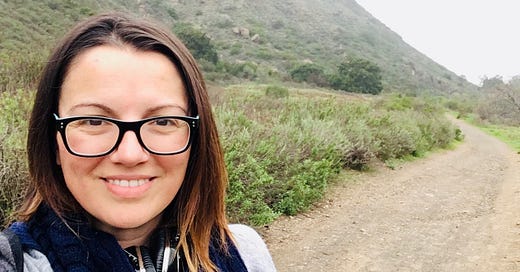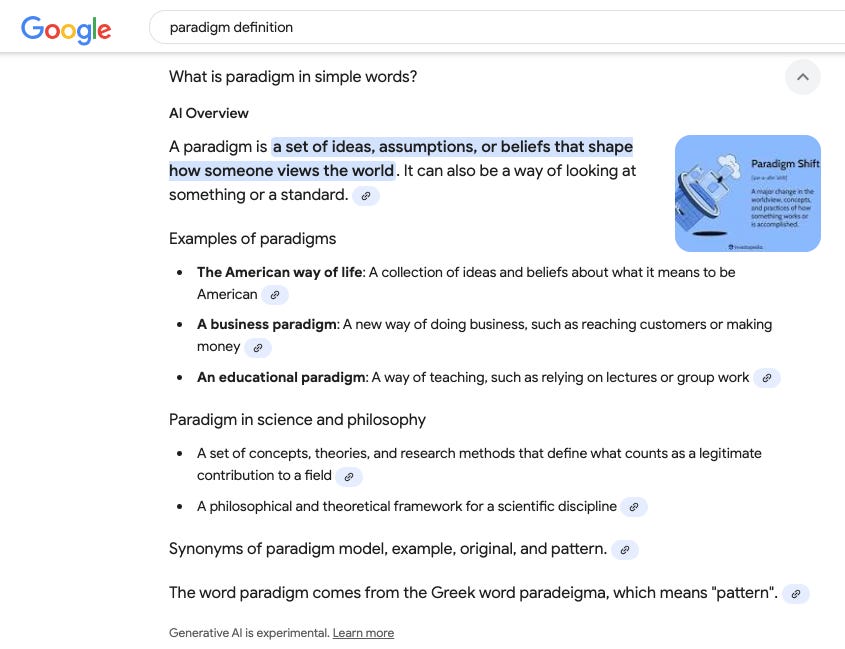Peace, Walk, Now: What Is A Paradigm?
My Peace Walk started in 2017 when my husband filed for divorce and the Alaska court system gave him custody of our two children, ages one and two at the time.
Read Peace, Walk, Now: Chapter 1, Part-Time Disruptor
Read Peace, Walk, Now: Chapter 2, Paradigm Shift
The Peace Walk is the proverbial journey of returning home. Not just to a physical home. But to the Heart.
This is the story of meeting our Self outside the context of social norms and polite appearances that we prompt ourselves to make in the mirror as we rehearse what to do when out in public. This is the journey of taking permission, if needed, to be unpolite and fall apart.
Please Note: I did not say taking permission to be hostile. I specifically said “unpolite,” in the sense of being willing to do the unexpected when faced with typical conformities of “polite” society.
To give an example, if you’re a perpetual ass-kisser (like I was), give yourself permission to speak your mind, tell people no, walk away, make a mess. Conversely, if you happen to be a jerk already, give yourself permission to be kind.
And forgive yourself and everyone else completely.
Not partially. Not half way.
Completely.
You can’t go half way here. Inner peace doesn’t meet you half way. You have to reach for it and make a commitment to keep going until you have arrived. You’ll know when you get there.
But naturally, do whatever you want. I’m not here to influence you. I don’t want to influence you. I want you and everyone on Earth to see the truth for yourself.
One of my many teachers described the truth as being subjective. I’m okay with this:
May all people have the integrity of free will and freedom from oppression of any form, including self-oppression, to see and discover their own subjective truth.
I’m willing to say that self-oppression is probably the most common form of oppression and the most unnoticed. It is the easiest to hide and manipulate by both external and internal oppressors. In this sense, it’s the most convoluted form of oppression.
How does one liberate oneself from self-oppression?
I believe this requires a personal paradigm shift.
REFLECTION MOMENT:
What is a paradigm?
Are there any paradigms in your life that have influenced you positively or negatively?
When do you first remember being influenced by a paradigm?
Before I transferred to UC San Diego, I attended Long Beach City College for two years. One of the reading assignments in my Modern English Literature class was a book titled, The Unbearable Lightness of Being by Milan Kundera (1984).
We had to keep a reading journal for the class. I got an “A+” on my journal for the first part of the semester, with a note saying “Excellent start, Nadia” (double underline on “Excellent”). Then my final grade dwindled down to merely an “A.” (This was before I dated Jack and he taught me how to negotiate my grades. Read about Jack in Chapter 1.) Two of my writing topics were about this book.
Topic #20: Lightness and Weight in The Unbearable Lightness of Being (Kundera, 1984)
This novel was essentially a “book of opposites” in that it raised many conflicting viewpoints. The main conflict was that between lightness and weight. Kundera wrote:
“[Paramenides] saw the world divided into pairs of opposites: lightness/darkness, fineness/coarseness, warmth/cold, being/nonbeing. One half of the opposition he called positive (light, fineness, warmth, being), the other negative.” (p.5)
The polarity of lightness and weight, according to Kundera, are ambiguous. He argued that although the lightness of freedom, for example, may seem to be the positive, people need a burden to hold on to if their lives are going to be meaningful.
Okay, why are we revisiting my book report from 1998?
Retyping this has reminded me of the philosopher Paramenides. I had forgotten all about him. I Googled his name but still don’t remember anything other than what I wrote here. Google reminds us that he was born in late 6th century BC and is accredited as a Greek philosopher—a thinker and an influencer of idea consumption. This was a long-ass time ago, but his influence has clearly lingered and left a mark in history.
Yet, what he presented back in his day wasn’t even original. Light and dark, warm and cold… yin and yang anyone? These concepts are essential Daoism 101 curriculum, originating in China. What I find interesting is that Daoist theory, very similar to what Paramenides is credited for in Western philosophy, was forming at more or less exactly the same time. (Well, according to Google. LOL.)
Did Paramenides copy the Daoists? Did the Daoists copy him? Did they even know about each other? Did they all receive the same cosmic download in human consciousness at the same time in different parts of the world? Did one of them get the download and plug it into the human consciousness grid, giving others immediate access because we are all artistically and creatively in tune (whether we choose to use these parts of our brain or not) and able to access the creative consciousness of shared human experience?
Personally, I think these last two are the most relevant questions. But history doesn’t tend to keep track of important things like this.
What history does tend to keep track of is paradigms. Power struggles. Power mandates. Rules, regulations, and power control propaganda. This occurs both explicitly and more often at very subtle, discrete, barely noticeable levels. (Read my post on discernment: A Mind for Peace.)
I’m guessing that, like I forgot about my book report on Paramenides, I also forgot about all the countless paradigms that have influenced my thinking, my way of living, my psychology, my social interactions, and my emotional response programs.
So many programs in human consciousness. So little time to keep track of them all, ya? LOL.
Finding this journal again was eye opening for me. It reminded me that the paradigm of our thinking—of our entire 2020-something value system—didn’t start out the way we think it did or how we understand it today. It was painted, planted, and even implanted into our minds with the seeds of ideas that have accumulated for thousands of years across the canvas of collective human consciousness.
Some seeds grew into forests, and those forests grew into bigger forests.
The paradigm of Paramenides’ assessment of the world, whether he came up with it on his own—whether anyone believed him or not, whether anyone shared the same vision with him—this paradigm is embedded in our language and the framework with which we talk about and measure things today. And this paradigm isn’t the only one influencing us.
How many paradigms are influencing us without us even knowing it?
Fun Fact: I learned about the word paradigm and its definition the year after I took this Modern English Literature class. We didn’t have smartphones back then. After seeing the word in the title of an interesting book, I had to look it up in an actual print dictionary that I carried around with me.
Topic #21: Milan Kundera and Infinite Returns
In relation to the dichotomy of lightness and weight, Kundera speaks of the prospect of eternal returns:
“To think that everything recurs as we once experience it, and that the recurrence itself recurs ad infinitum! What does this mad myth signify?
“Putting it negatively, the myth of eternal return states that a life which disappears once and for all, which does not return, is like a shadow, without weight, dead in advance, and whether it was horrible, beautiful, or sublime, its horror, sublimity, and beauty mean nothing.” (p.3)
This is the essence behind the whole novel. All the characters’ lives are light and virtually meaningless because of the death that will come to them. For this reason, Kundera casually announces Tomas and Tereza’s deaths not even halfway through the novel. That they die does not matter. What does matter is how they deal with the life they have been given.
Nihilism. Can’t live with it. Can’t get out of repeating it. Am I right? LOL.
Jokes aside, how does one escape and liberate oneself from nihilistic self-oppression?
The 1993 movie Groundhog Day with Bill Murray offers one hypothesis. Half way through, the characters propose an escape route out of the circular circumstances they keep ending up in after repeating the same patterns of behavior over and over and over again.
I like this. Having an escape route feels liberating. For those who haven’t seen the movie yet, I won’t spoil it.
REFLECTION MOMENT:
What is your escape route?
My former escape route was to move to Alaska. My escape route after that was to move out of Alaska. My escape route from this escape route might be to move back to Alaska. LOL. I doubt it, but we’ll see. I still have time to think about it…
My personal journey and experience of self-liberation has been through a radical series of disruptive events in my life that have given me a lot of perspective.
(Read Chapter 1: Part-Time Disruptor)
Some have been devastating, emotionally crippling, mentally unraveling, traumatic, to say the least. But not all of them. Some were fun, enjoyable, safe, generous, kind, and miraculous.
What if the radically disruptive events that transform us can be fun, enjoyable, and miraculous most of the time? Or hey, why not all the time?
That would be RAD AF!






